-
 +38 +1
+38 +1What’s the secret of genetic equality between the sexes? New platypus chromosome research may hold the key
Females have twice as many copies of some genes as males do – and exactly how different species manage this imbalance has puzzled scientists for decades.
-
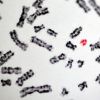 +22 +1
+22 +1Modern human DNA contains bits from all over the Neanderthal genome – except the Y chromosome. What happened?
A mysterious century-old law of genetics may explain the puzzling genetic legacy of our extinct Neanderthal cousins.
-
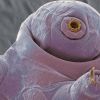 +36 +1
+36 +1Scientists Discover How Tardigrades Survive Blasts of Radiation, And It's Weird
Tardigrades are possibly the most indestructible animal on Earth.
-
 +10 +1
+10 +1How Finding Your Roots Turns DNA Research Into Essential TV
Producers behind PBS' series reveal how they help guests explore their family trees.
-
 +26 +1
+26 +1Beethoven’s DNA reveals he just wasn’t that musical
Analysis of Beethoven’s DNA has revealed that he had a low genetic predisposition for beat synchronization, an ability that’s closely related to musicality. This is according to researchers who set out to show how making genetic predictions for individuals, including famous historical figures, can…
-
 +36 +1
+36 +1Amazing Discovery Reveals Why You Didn't Get Your Dad's Mitochondria
Virtually every animal on Earth can thank their mother for the energy that fuels each of their cells.
-
 +22 +1
+22 +1The 'weird' male Y chromosome has finally been fully sequenced. Can we now understand how it works, and how it evolved?
The Y chromosome is a never-ending source of fascination (particularly to men) because it bears genes that determine maleness and make sperm. It’s also small and seriously weird; it carries few genes and is full of junk DNA that makes it horrendous to sequence.
-
 +43 +1
+43 +1Police Are Getting DNA Data From People Who Think They Opted Out
Forensic genetic genealogists skirted GEDmatch privacy rules by searching users who explicitly opted out of sharing DNA with law enforcement.
-
 +25 +1
+25 +1'He was horrific!': Nearly two thirds of family historians are distressed by what they find – should DNA kits come with warnings?
Researching family history is a popular hobby. But hobbyists can find themselves unearthing details of ancestors behaving badly or treated cruelly – or family secrets and trauma.
-
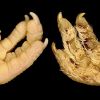 +15 +1
+15 +1Scales or feathers? It all comes down to a few genes
A UNIGE team shows how specifically modifying gene expression causes feathers to replace scales in the chicken.
-
 +3 +1
+3 +1Study reveals unique molecular machinery of woman who can’t feel pain
The biology underpinning a rare genetic mutation that allows its carrier to live virtually pain-free, heal more rapidly and experience reduced anxiety and fear, has been uncovered by new research from UCL.
-
 +15 +1
+15 +1Their stories were lost to slavery. Now DNA is writing them
A project in Charleston, South Carolina, is using DNA to trace the African roots of three dozen people buried in the late 1700s
-
 +18 +1
+18 +1Experts Conclude Genome Editing in Human Embryos Still Too Risky
The Third International Summit on Human Genome Editing has concluded, and experts have agreed that human genome editing is not ready The Third International Summit on Human Genome Editing has concluded, and experts have come to a consensus that, “Heritable human genome editing remains unacceptable at this time,” according to their statement.
-
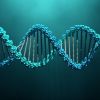 +20 +1
+20 +1Aging Is Linked to More Activity in Short Genes Than in Long Genes
A detailed examination of gene activity in various organisms, including humans, reveals a new hallmark of the aging process
-
 +21 +1
+21 +1Disgraced CRISPR-baby scientist says editing of human embryos should be banned
But researchers are frustrated that He Jiankui refuses to provide details about his controversial experiments in 2018.
-
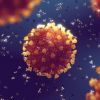 +13 +1
+13 +1Controversial new research suggests SARS-CoV-2 bears signs of genetic engineering
A string of about 30,000 genetic letters were all that it took to start the nightmare of covid-19, the death toll from which is likely to be more than 20m. Exactly how this story began has been hotly contested. Many think that covid-19’s emergence was a zoonosis—a spillover, as so many new pathogens are, from wild animals, for it resembles a group of coronaviruses found in bats.
-
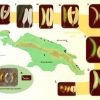 +15 +1
+15 +1Domestication History of Bananas is More Complex Than Previously Thought
New research led by the global research-for-development organization Bioversity International confirms that the genomes of today’s domesticated banana varieties contain traces of three extra, as yet unknown, ancestors.
-
 +17 +1
+17 +1Huge plan to map the DNA of all life in British Isles
Seventy thousand species. That’s the best guess for the tally of life, including plants, animals and fungi, found in Britain and Ireland. And it’s the target of one of biology's most ambitious projects - scientists want to map the DNA of every single one of these organisms.
-
 +14 +1
+14 +1New CRISPR-based map ties every human gene to its function
A new CRISPR-based map ties every human gene to its function using a tool called Perturb-seq. The work was led by Jonathan Weissman and colleagues at MIT and the Whitehead Institute, and is free for other scientists to use.
-
 +25 +1
+25 +1A Pair of Twins Grew Up in Different Countries, Then Scientists Compared Them
Researchers have taken advantage of a rare opportunity to study identical (aka monozygotic) twins who were separated early in life, before being raised in different countries by different families – and there are some surprising results to report.
Submit a link
Start a discussion




















